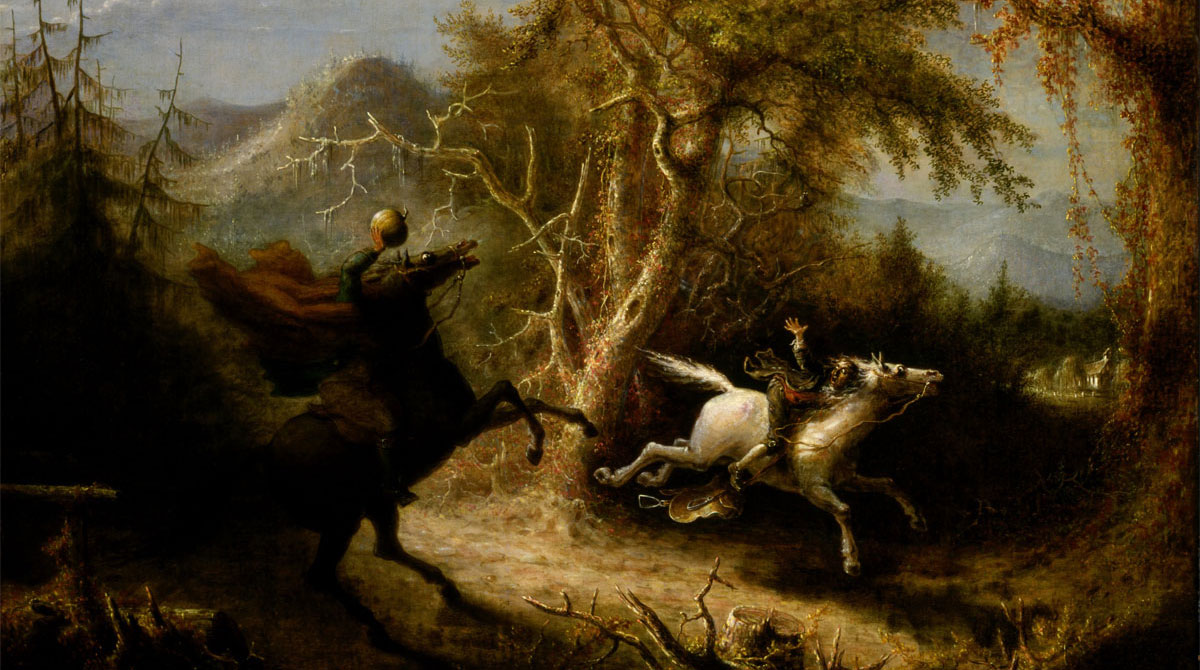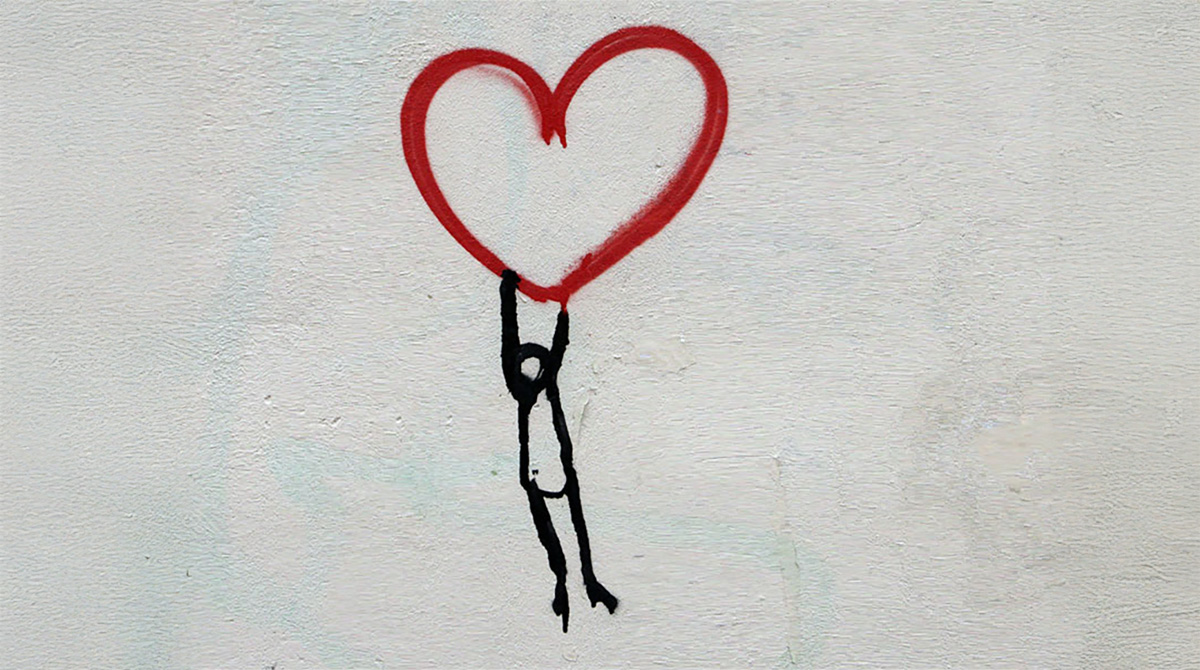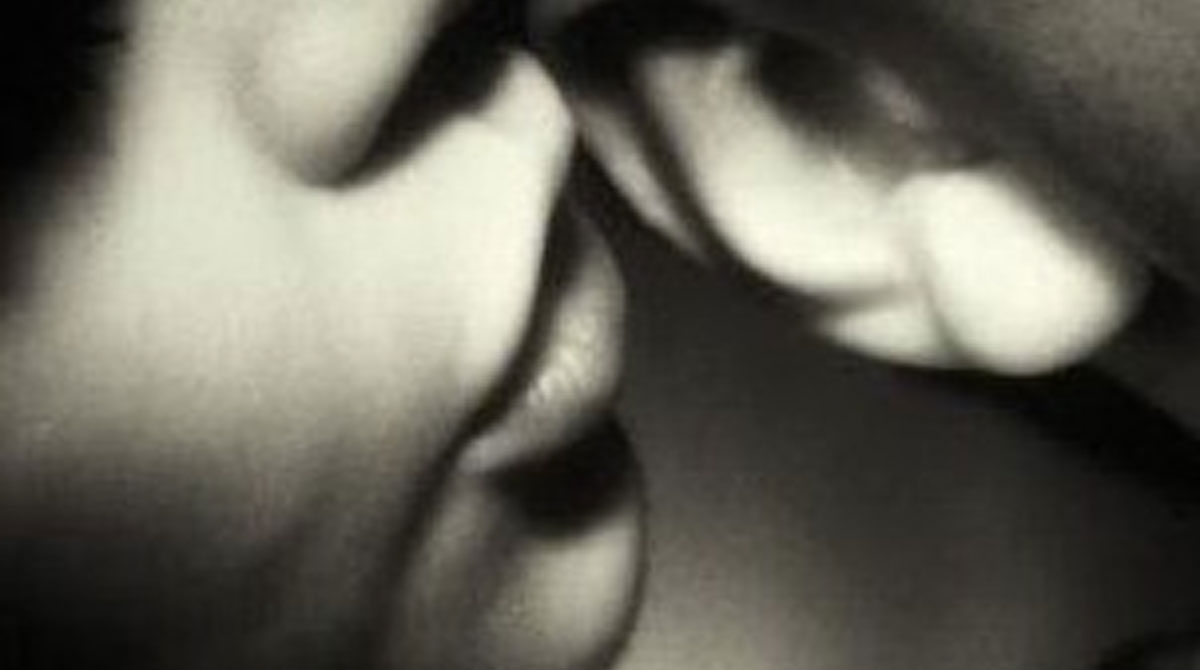The Legend of Sleepy Hollow
“The Legend of Sleepy Hollow” has for a long time been my favorite “ghost story,” not solely because of how well it is told, but also because it is, for me, a “local” tale, in that I grew up in Harrison, just a few miles from its setting, the villages of Tarrytown and Sleepy Hollow, and most importantly because it is so distinctly American, despite the origins of the headless horseman legend being very likely European.
“Legend” is the second of Washington Irving’s famous remixes. In The Sketch Book of Geoffrey Crayon, the same story collection in which “Legend” appears—and the often credited as being the very first American short-story collection—he appropriates a German tale for the composition of “Rip Van Winkle”; and in “Legend” he takes another European legend, one he probably heard from his new Brit-bro Sir Walter Raleigh, and makes it just about as American as you could get, in that it’s a legend borrowed from other legends made anew in God’s image.[1]
All of which means that I’m about to talk about our most famous “Halloween story” with nary a mention of the part of the story you all know—the frenzied horse chase into the dark woods, the goofy schoolmaster’s elbows and knees jutting out, the sheer terror of being pursued by the HEADLESS HORSEMAN, the pumpkin head, etc. That’s Irving at his most dramatic, but most of that is the borrowed stuff. Ultimately what makes the story so meaningful, in case you weren’t paying attention a paragraph ago, is its iconic Americanness.
Now then, our cast of characters, staring with one of the most famous (the most famous?) in American culture: Ichabod Crane, the unlikeliest of heroes; Katrina Van Tassel, the plump and attractive heiress to a lush and fertile farm; and Brom van Brunt (has there ever been a better name for a villain?), a.k.a. “Brom Bones,” the brawny bully of the village, who had his eye on Katrina before the pathetic and skinny Ichabod moved in on his turf, and who, after watching Ichabod’s terrified reaction to the telling of the famous legend of the headless horseman, decides to play the most famous prank in American literary history.
On horseback. In the dark. In the woods. With a pumpkin.
That scary European legend? It’s now, in an American’s hands, about some ordinary meathead playing a practical joke on a nerd. Boys will be boys, right?
But seriously, here they are: three characters representing three iconic American “types” that have shaped, and still shape, our culture.
First, the American Yankee. Ichabod—let’s be honest—is a pain in the ass, albeit a somewhat lovable pain in the ass. The American Teacher, underpaid and overworked, appreciated only by a few village women. He whips his students—surely out of frustration over his lack of funds—but supplements his paltry income by helping other people out on the farm or, well-schooled in Cotton Mather’s by-now-fading Puritanism, as a wandering instructor of psalmody, the kind of guy who kisses up to the Protestants while hungering after their material goods. (In the previous century he might have been a minister, since they ran not only the churches but also the schools and the government.) He lodges in his pupils’ houses, “making the rounds of the neighborhood, with all his worldly effects tied up in a cotton handkerchief,” in order (it is implied) to elicit sympathy (and tips), like some small-town 19th-century Ben Franklin wanna-be.[2] For Ichabod’s interest in Katrina van Tasell is not, alas, a matter of the heart, but of the wallet. (She’s loaded.) And of the stomach, for Ichabod “was a huge feeder, and, though lank, had the dilating power of an anaconda.”
Oh those ever-hungry, insatiable Yankees. Those New Englanders, which then included New Yorkers, constantly working (or at least seeming to) and manipulating (while seeming not to) and persona-ing (i.e. seeming to seem) in order to make money and possess stuff. And salivating over women who either are or appear to be rich, in an ever-futile but seemingly endless series of attempt to satiate their insatiable anaconda-like appetites.
And what of this plump and fair Katrina? She would be the quintessential representative of the Old Dutch culture that “founded” the lush green island inhabited by the Manhattoes and claimed it as Old Amsterdam, which of course became New York, a culture still moneyed in Irving’s time (they owned many of the businesses and pubs that had thrived during the vast influx of settlers in the 17th century) but fading, giving way to the more industrious types of the new republic. Katrina, a “blooming lass of fresh eighteen, plump as a partridge, ripe and melting and rosy-cheeked as one of her father’s peaches,” sets Ichabod’s stomach a-growling; so much so that he doesn’t seem to recognize that she is “universally famed, not merely for her beauty, but her vast expectations.”
In other words, you might like to have her for dinner, but remember, those rich girls tend to have high expectations. (And the reader increasingly suspects, is playing this lanky schoolboy for a fool.) “In too deep” by this point, Ichabod marvels at the old-world charm of the Dutch squires gathered at her house for the big party, the gathering that spurs the famous chase at the end. The old farmers are wearing “homespun coats and breeches, blue stockings, huge shoes, and magnificent pewter buckles. Their brisk withered little dames” wear “close crimped caps, longwaisted short gowns, homespun petticoats, and gay calico pockets hanging on the outside” and the young men his age have donned the kind of “short square-skirted coats with rows of stupendous brass buttons,” young Crane would give anything to wear, “their hair generally queued with an eelskin in the fashion of the times.” Yum enough, right? But then he catches sight of all the “apple pies and peach pies and pumpkin pies, besides slices of ham and smoked beef; and, moreover, delectable dishes of preserved plums, and peaches, and pears, and quinces, not to mention broiled shad and roasted chickens; together with bowls of milk and cream . . . “ Enough! Ichabod can hardly stand it, practically rubbing his hands and mwah-ha-ha-ing over the display, thinking he “might one day be lord of all this scene of almost unimaginable luxury and splendor.”
#theAmericanDream, am I right? Except back then it was called “the Dream.”
Brom Bones, our third star (I imagine the largest of the Hemsworth brothers in this role) is also a type, but we get little by way of sympathy-inducing backstory for him, so he remains, at the end, the very kind of strong, handsome, adventurous, clever-but-somewhat-dopey man who, instead of openly confronting his rivals, preferred to pull boyish pranks on them (for example, stopping up the chimney to Ichabod’s schoolhouse) and brag over a few beers about how they would someday kick their rivals’ asses.[3] The prototypical frat boy. Not in the least bit likeable, and yet immensely likeable, in that we’d all, like them, love to not take everything so damn seriously. To a spoiled rich girl with no discernable intelligence beyond the that of the Coquette of Restoration Drama lore, he might very well be the very kind of “real man” who can take her away from Daddy’s farm and treat her like the queen of her own castle somewhere.
Somewhere, for example, Out West. For in the 1820s this was exactly what was going on, as the hardiest and most adventuresome of America’s men were venturing westward to find some hard gold and loose women,[4] and Brom Bones is just this type. The type who would manifest America’s destiny, morals or no morals, and both solidify and spread-far-and-wide his nascent anti-intellectualism, thumbing his nose at anything smacking of government interference and anyone who might force him to read, say, a book by Washington Irving.
Of the three “ways of being” represented in these characters, Irving clearly favors the Dutch. Note that at the end of “Rip Van Winkle ” he has Rip, bewildered by the change that has overcome his village during the twenty years he’s been asleep (from the sleepy pre-Revolution Dutch town to the busy, haranguing, capitalist hotbed it had become post-1776, eventually finding his place with old Nicholas Vedder at the inn, lazily smoking a pipe and telling stories, and very likely complaining about the Ichabod Crane types campaigning endlessly before this new things called “the Election.” Irving himself, after all, with his velvet knickers and easygoing personality, milked that Old Dutch persona all the way to the bank, becoming America’s first bestselling author, the first writer to make a career from his writing. But the cute, beknickered author had his finger in the air and knew which way the wind was blowing, so he awards Katrina to the Bully, the adventurous prankster, the Frontiersman, for he recognizes that the future of America belongs to the Brom Boneses of the land, because men of action, men who are ready to kill and be killed, are the ones who will manifest America’s destiny.
So Brom gets the girl, and the classy gets co-opted by the classless. But, in a twist that few people remember about the story, the money, the government, the power to make policy and to punish the Brom Boneses of the new land all belong to the Insatiable Yankee. For, rumor has it, Ichabod disappeared that night but somehow resurfaced in New England, went to law school, became (of course) a politician, and is now a judge of a (wait for it) small claims court. In other words, he rules over the most annoying court cases, the petty crimes, those that the Brom Bones gang would resolve with a prank or a punch in the face.
As for the Old Dutch, they’re still with us, but barely. Perhaps (since really, the Dutch aren’t even so Dutch anymore), they have morphed into the “lazy American,” the kind who now live in SoCal, or in the South, or in West Virginia, or in your own house. Or anywhere pipes are smoked. My father, sitting in his armchair, smoking a cigarette and watching television, telling stories about the old days, and never really complaining, except once in a while, about . . . well, about the Ichabod Cranes of the world. They, too, in their own way, still influence the character of the country, but in a less benign, less positive, fashion.
Irving himself, Dutch-o-phile that he was, once our most famous author, is now all but forgotten.[5] But his two most famous tales live on, their main characters filtering into our culture as prototypes. Rip begot Dagwood begot Archie begot Adam (Sandler). Ichabod begot Dick van Dyck begot the Kennedys begot John Kerry begot Judge Judy. Just as everyone today knows who Rip van Winkle is, everyone also knows Ichabod Crane and the Legend of the Headless Horseman—at the conscious level because it is an iconic story, that galloping headless Hessian chasing the gangly schoolmaster in the dark) but at the level of the Collective Unconscious for its resonance, the truth it tells about our culture—to wit, that the bullies always win, but the eggheads get their revenge by litigating and politicking us to death.[6] That’s America, right there: a Brom Bones-like disdain for and mockery of intellectualism and a petty, vengeful obsession with law that has turned us into the most litigious nation on earth—all the while Oprah, Dr. Phil, and “the Dude” insist that we slow down and enjoy ourselves for Dutch sake. For good or ill, Irving saw it all coming, snuck it all into a seemingly innocent horror story, and thus gave it the legs it needed to be the American story for the centuries.
[1] Just kidding. (Sort of.)
[2] Without Franklin’s brain power, that is. But like young Ben, who kept a light on in his office even when he wasn’t there (so people would think he was a hard worker) and kept telling the story of how he arrived in Philly with only a loaf of bread to his name even though a trunk filled with his possessions arrived soon afterwards, Icabod milks the persona for his own profit.
[3] Think Bluto from the Popeye cartoons.
[4] Katrina is sufficiently-enough schooled in the ways of seduction to flash a pretty ankle whenever possible.
[5] When I once coached a girls’ basketball game against Washington Irving High School in Sleepy Hollow, New York, I asked all twelve members of the Washington Irving team what they knew about the namesake of their school, and not a single person had a clue. “Was he one of the first presidents?” one of them asked.
[6] Think of what the Ivy League students in the stands during a football game chant as their team is being drubbed by a “lesser” school: “That’s all right, that’s okay, you’re all gonna work for us someday.”)
originally published October 31, 2019
Read more from David Hicks at david-hicks.com












Likhon chowdhury says:
Conor says:
Andy Garcia says: